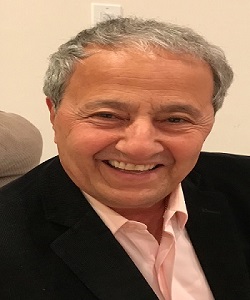
واشنطن– تعود بي الذاكرة إلى بداية الستينات، حين طلب مني جارنا اسكندر اليازجي ، رحمه الله، و كنت حينذاك في الإعدادية ، أن أحرس ” دكانه” في فترة القيلولة، فبدل أن يغلقه ،كما كان يفعل أصحاب متاجر مدينتي آنذاك، آثر إبقاءه مفتوحاً لزيادة إيراداته و لتوفير فرصة تلبية حاجات الحي الطارئة في آن.
في تلك الأيام الجميلة كان جهازالمذياع جزءاً مكملاً لهوية الحي . يصدح صوته مع فتح أبواب المحلات ويخبو بعد الظهر احتراماً لمتمتعي القيلولة. كان المصدر الوحيد للطرب والغناء، والأخبار والمسلسلات. كان بينه وبين أدمغتنا تواصل إبداع. نرسم من خلاله هيئة المذيع، ومقدمي البرامج وممثلي المسلسلات من وقْع أصواتهم : الشجي، المخلخل، المصهرج، الأجش،الناعم ، الأبح ،المرتعد … إلى آخر قائمة صفات أصوات البشر. وحدها وجوه المطربين وممثلي السينما كانت معروفة لدينا من أفلامهم و حفلاتهم. وحتى أولئك كان المذياع يقوم بمهمة إيصال أخبارهم إلينا ،عبره ومن دون خشبة مسرح يعلوها مغنٍ ينط ويرقص ويصرخ مع جمهوره! ، كما هو حال الغناء هذه الأيام . معجزة أن تميز بين الأغاني و مؤدّيها. كلهم ينطون، و كلهم يرقصون . غاب الطرب وحضر الإستعراض. غاب سحر الاختلاف وحضر النسق الواحد .كان مطرب ذاك الزمن الخاص يقف مع فرقته على المسرح بأناقته الكاملة، يسحرك بكلمات راقية ولحن آسر وصوت ذي هوية مميزة. كان المذياع بيت الجميع . وكنا الضيوف.
كنت في “دكان ” جارنا اسكندر، مذياعه يلتزم باحترام قوانين القيلولة،خافت الصوت لكنه مسموع . صوت المذيع يعلن عن تقديم أغنية “أيظن أنّي لعبة بيديه ” . كانت تلك الأغنية قد انطلقت لتوها. الكلمات لنزار قباني واللحن لمحمد عبد الوهاب والأداء له و لنجاة الصغيرة. أسماء عملاقة و قامات من ذاك الزمن الرفيع. كان حين تنطلق مثل تلك الأغاني ذات الباقة المتكاملة ، كلمات ولحناً وأداء، يعاد بثها طوال اليوم، ومن محطات إذاعية مختلفة. كنت صغيراً ولم يكن تذوق الطرب و الغناء قد وجد طريقه إليّ، إذ لم يكن لدقات قلبي أي علاقة بالحب و الحرمان والفراق و كل عائلة العشق وأقاربه. لم تمر لحظات على بدء موسيقى الاغنية حتى يتوقف أمامي شاب في أواخر العشرينات من عمره، و يقول لي : ممكن ترفع الصوت قليلاً.استجبت لطلبه رفعت الصوت قليلاً. سألني إن كان يستطيع البقاء ليستمع إلى الأغنية كاملة. قلت : أكيد.
وقف وخده مسنودا على كف يده يستمع . كنت أتابع إنفعالات وجهه المتناسقة مع كلمات الأغنية : يعقد حاجبيه بحزن، يفتح عينيه و يغمضها . يهز رأسه يميناً و يساراً. يشبك كفيه و يسند رأسه عليهما . وحين تصل نجاة إلى عبارة “ما أحلى الرجوع إليه” ترتجف شفتاه و و تتدحرج دموعه على خده . يمسحها و يحاول مداراة الحزن!
تنتهي الأغنية ! يشكرني و يغادر! مشهد لا يبدع في إدارته سوى المذياع.كان القادر على انطلاق العنان لأحاسيسنا كما يحلو لنا الخيال. نسمع الصوت ونعيش اللحظة منّا وبنا.
إنه المذياع. ذو الشاشة الذهنية العجيبة. كم نفتقدك ونحن نجلس الآن أمام شاشات تعتقل أنظارنا، تسلب منا التفكير وتمنع عنا الخيال.
بوابة الشرق الأوسط الجديدة
The Radio… A Beautiful Memory
By: Reda Asaad
Washington- My memory takes me back to the early 1960s when our neighbor, Iskandar Al-Yazji, may God rest his soul, asked me, while I was still in middle school, to guard his “shop” during siesta time. Instead of closing it, as most shopkeepers in my city did back then, he preferred to keep it open to increase his revenue and provide the neighborhood with the opportunity to meet their urgent needs.
In those beautiful days, the radio was an integral part of the neighborhood’s identity. Its voice would resound with the opening of the shops and fade in the afternoon out of respect for those enjoying their siestas. It was the sole source of music, songs, news, and series. There was a creative connection between it and our minds. We imagined the broadcasters, program hosts, and actors in the series based on their voices: melodious, resonant, booming, hoarse, soft, raspy, trembling… the list of human voice qualities goes on. Only the faces of singers and movie actors were known to us from their films and concerts. Even those, the radio conveyed their news to us, without the need for a stage with a singer jumping, dancing, and shouting with their audience, as is the case with music these days. It’s a miracle to distinguish between the multitude of songs and their performers now; they all jump, they all dance…it all sounds the same. The delight of listening to the lyrics has disappeared, and the spectacle has taken over. The charm of diversity is gone, replaced by uniformity. The singer of that bygone era stood on stage with their full elegance, enchanting you with refined lyrics, captivating melodies, and a voice with a unique identity. The radio was the home for everyone, and we were its guests.
While I was in our neighbor Iskandar’s shop, his radio adhered to the rules of siesta, its voice low but audible. The announcer introduced the song “Ayazunno …” (Does He Think I am just a toy in his hands …). That song had just been released, with lyrics by Nizar Qabbani, music by Mohamed Abdel Wahab, and performed by both him and Najat Al Saghira…giants of that sublime era. When such songs with a complete package of words, melody, and performance were launched, they would be rebroadcast throughout the day from different radio stations. I was young, and the appreciation for music and singing had not yet found its way to me; my heartbeat had no connection with love, deprivation, separation, or the entire family of love and its relatives. Moments hadn’t passed after the song’s music began when a young man in his late twenties stopped in front of me and asked, “Can you turn up the volume a bit?” I complied and raised the volume a little. He asked if he could stay to listen to the entire song. I said, “Sure.”
He stood there, his cheek resting on his hand, listening. I observed the expressions on his face matching the song’s words: he furrowed his brows in sadness, opened and closed his eyes, shook his head from side to side, clasped his hands and rested his head on them. When Najat reached the line “How sweet it is to go back to him,” his lips quivered, and tears rolled down his cheek. He wiped them away, trying to hide his sorrow.
The song ended! He thanked me and left! A scene that only the radio could masterfully manage. It could unleash our feelings as our imagination pleased. We heard the sound and lived the moment from and within ourselves.
It is the radio, with its wondrous mental screen. How much we miss you as we now sit in front of screens that captivate our eyes, rob us of our thoughts, and prevent us from giving rein to our imagination.
Great Middle East gate




